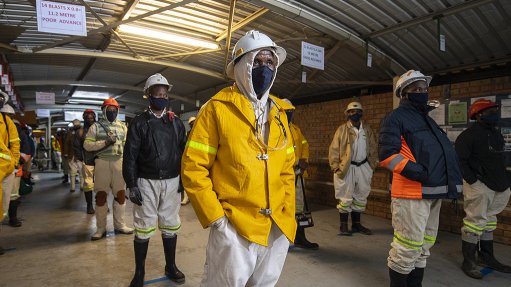
South Africa is becoming an outlier in workplace regulations, with businesses still being required to maintain an array of Covid-19 workplace regulations.
These include keeping an attendance register of employees or visitors entering the workplace, routine deep cleaning, along with screening and other costly Covid-19 practices, despite the clear evidence of a dissipated threat, says Business Leadership South Africa CEO Busi Mavuso.
She says the business community’s calls for Covid-19 regulation relaxations in the workplace have fallen on deaf ears, which she cannot fathom, given the high unemployment rate and the long-urgent need for companies to resume operations at maximum efficiency.
Her outcry follows sweeping changes made to many of the remaining Covid-19 restrictions in South Africa last week, including fewer testing and isolation requirements and abolished physical distancing in schools.
“Businesses are still, on paper, required to do many things that are now clearly unnecessary, including physical distancing of 1.5 m and many still needing to minimise the number of people at work through rotation and staggered hours,” Mavuso says.
In comparison, she points out, the UK and Denmark have dropped all regulations in workplaces, with Italy, Switzerland and Finland soon to follow.
She adds that employers can even drive vaccination rates among employees, which will add to the country’s immunity against Covid-19.
“We are clearly through the Omicron wave. Positive tests and hospital admissions are far down from the peak in December. The hospitalisation rate was below the prior two waves and only slightly higher than the first wave.
“However, deaths were far fewer than all the previous waves of Covid-19 infections, despite there being record numbers of infections.
“The disease does not have the clinical impact it did in earlier waves. Our unemployment rate makes it unacceptable to delay loosening restrictions any longer than necessary,” Mavuso argues.
She affirms that she will be questioning the Department of Employment and Labour and Cabinet on why more decisive action has not been taken to free up workplace restrictions, in efforts to stop any “anti-business” ideology.
“Besides, regulations can always be reintroduced should infection rates and clinical impact change.”